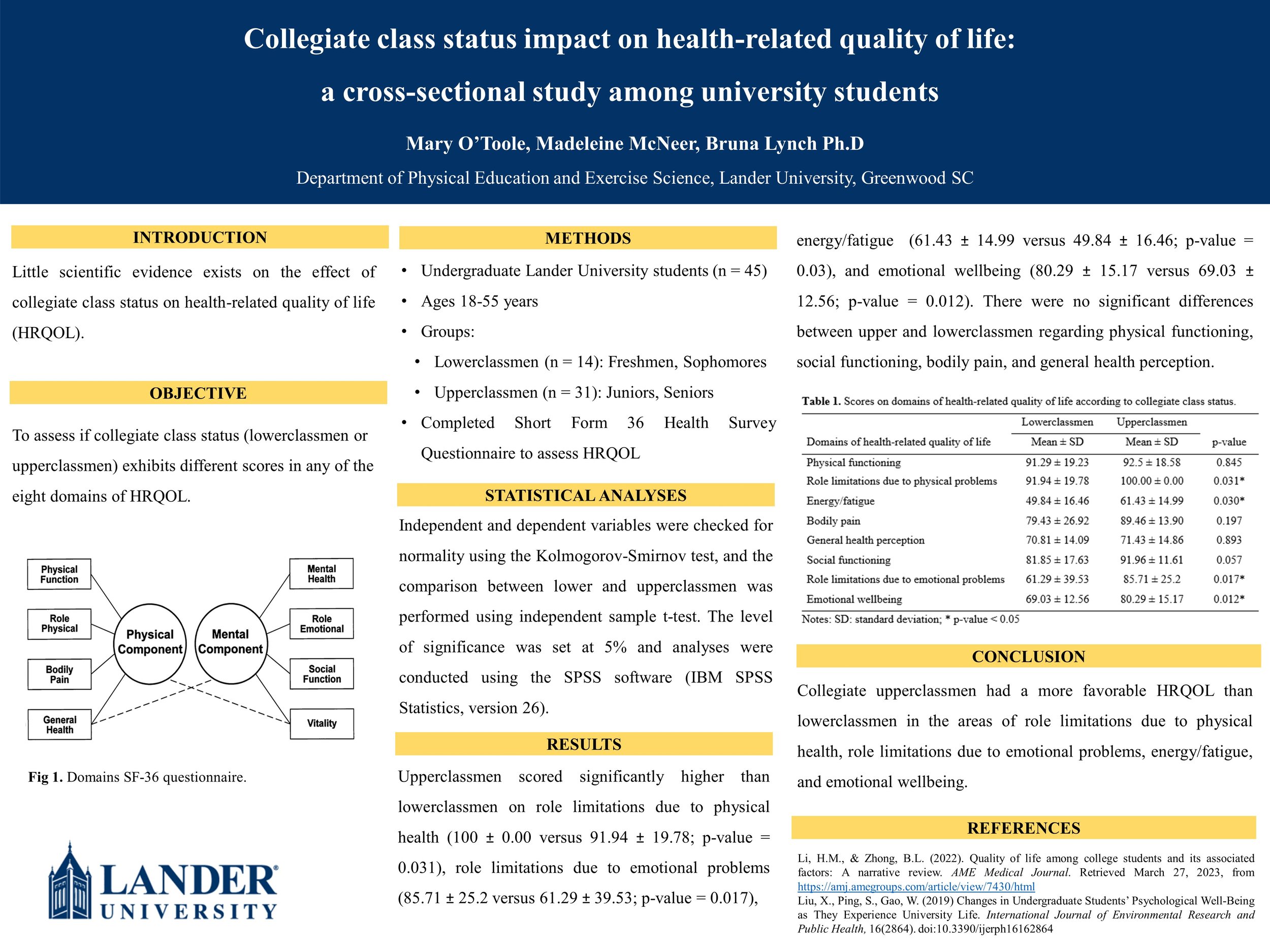Collegiate class status impact on health-related quality of life: a cross-sectional study among university students
Mary O’Toole, Madeleine McNeer, Bruna Lynch
Little scientific evidence exists on the effect of collegiate class status on health-related quality of life (HRQOL). Objective: To assess if collegiate class status (underclassmen or upperclassmen) exhibits different scores in any of the eight domains of HRQOL. Methods: Undergraduate students attending Lander University (Greenwood, SC) were invited to participate in the study if they were registered in activity (ACT) classes or wellness for life (WFL) classes. The Short Form 36 Health Survey Questionnaire (SF-36) was used to assess HRQOL (eight domains: physical functioning, role limitations due to physical problems, energy/fatigue, bodily pain, general health perception, social functioning, role limitations due to emotional problems, and emotional wellbeing). When scoring the SF-36, a higher score is indicative of more favorable HRQOL. Independent and dependent variables were checked for normality using the Kolmogorov-Smirnov test, and the comparison between under and upperclassmen was performed using independent sample t-test. The level of significance was set at 5% and analyses were conducted using the SPSS software (IBM SPSS Statistics, version 26). Results: Upperclassmen scored significantly higher than underclassmen on role limitations due to physical health (100 ± 0.00 versus 91.94 ± 19.78; p-value = 0.031), role limitations due to emotional problems (85.71 ± 25.2 versus 61.29 ± 39.53; p-value = 0.017), energy/fatigue (61.43 ± 14.99 versus 49.84 ± 16.46; p-value = 0.03), and emotional wellbeing (80.29 ± 15.17 versus 69.03 ± 12.56; p-value = 0.012). There were no significant differences between upper and lowerclassmen regarding physical functioning, social functioning, bodily pain, and general health perception. Conclusion: Collegiate upperclassmen have a more favorable HRQOL than underclassmen in the areas of role limitations due to physical health, role limitations due to emotional problems, energy/fatigue, and emotional wellbeing.
Mary O’Toole graduated from Dutch Fork High School in Irmo, South Carolina. She is currently a senior exercise science major at Lander University with a concentration in pre-physical therapy. She is part of the cross country and track teams and is the president of the PEES Club. She is a member of Alpha Chi National Honor Society and has been a member of the president’s list every semester as a Lander student. Mary was awarded the Peach Belt Conference Elite 16 Award for being the athlete with the highest GPA competing in the 2022 PBC Championships and has received multiple academic honors through her conference. She graduates from Lander in May and will be attending MUSC as a member of the DPT program.
Madeleine McNeer is a senior exercise science major at Lander University. She is from Greer, South Carolina. Madeleine is currently a member of the Lander women’s lacrosse team and has been on the Gulf South Conference Honor Roll every year. She will graduate in Fall 2023 and plans on taking a gap semester before attending physical therapy school.
